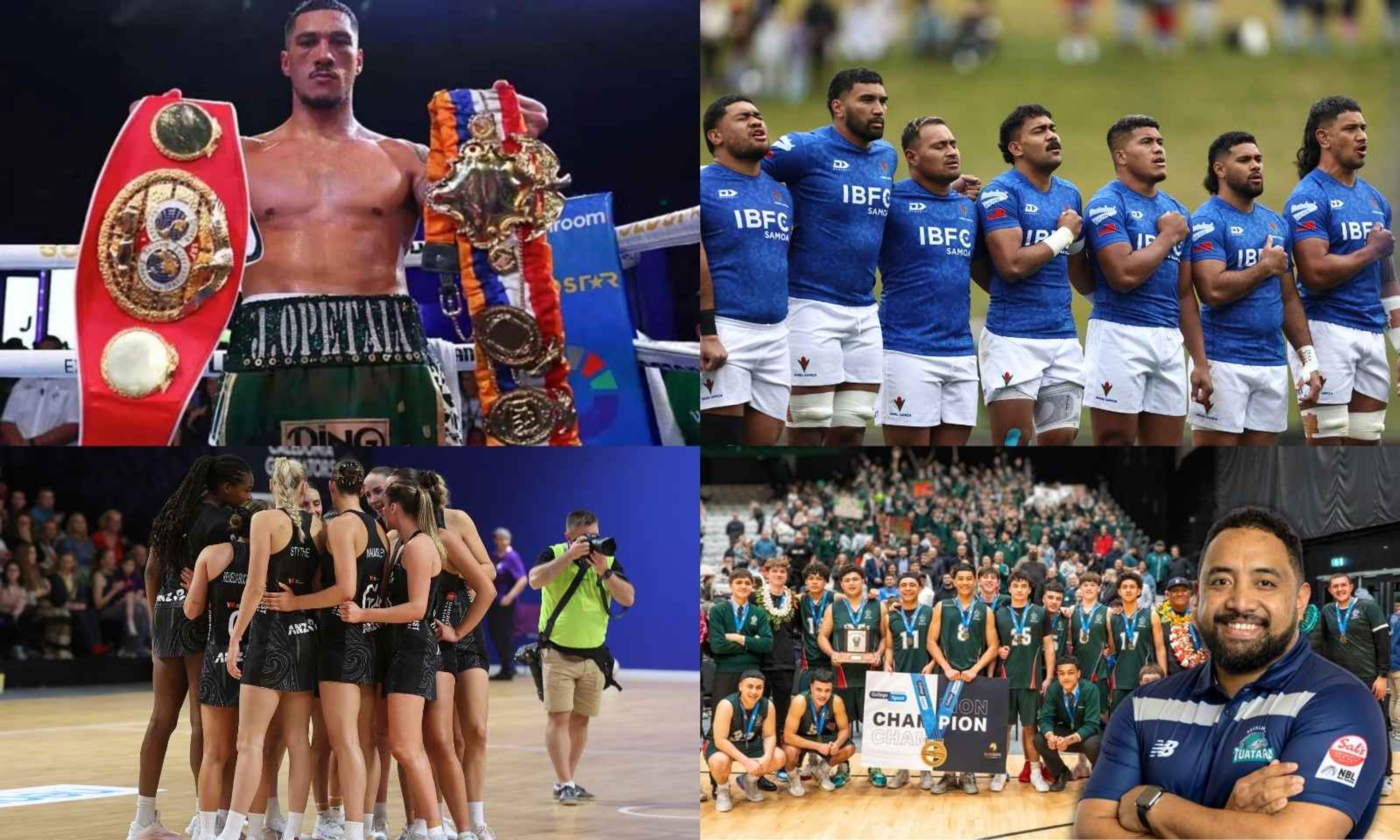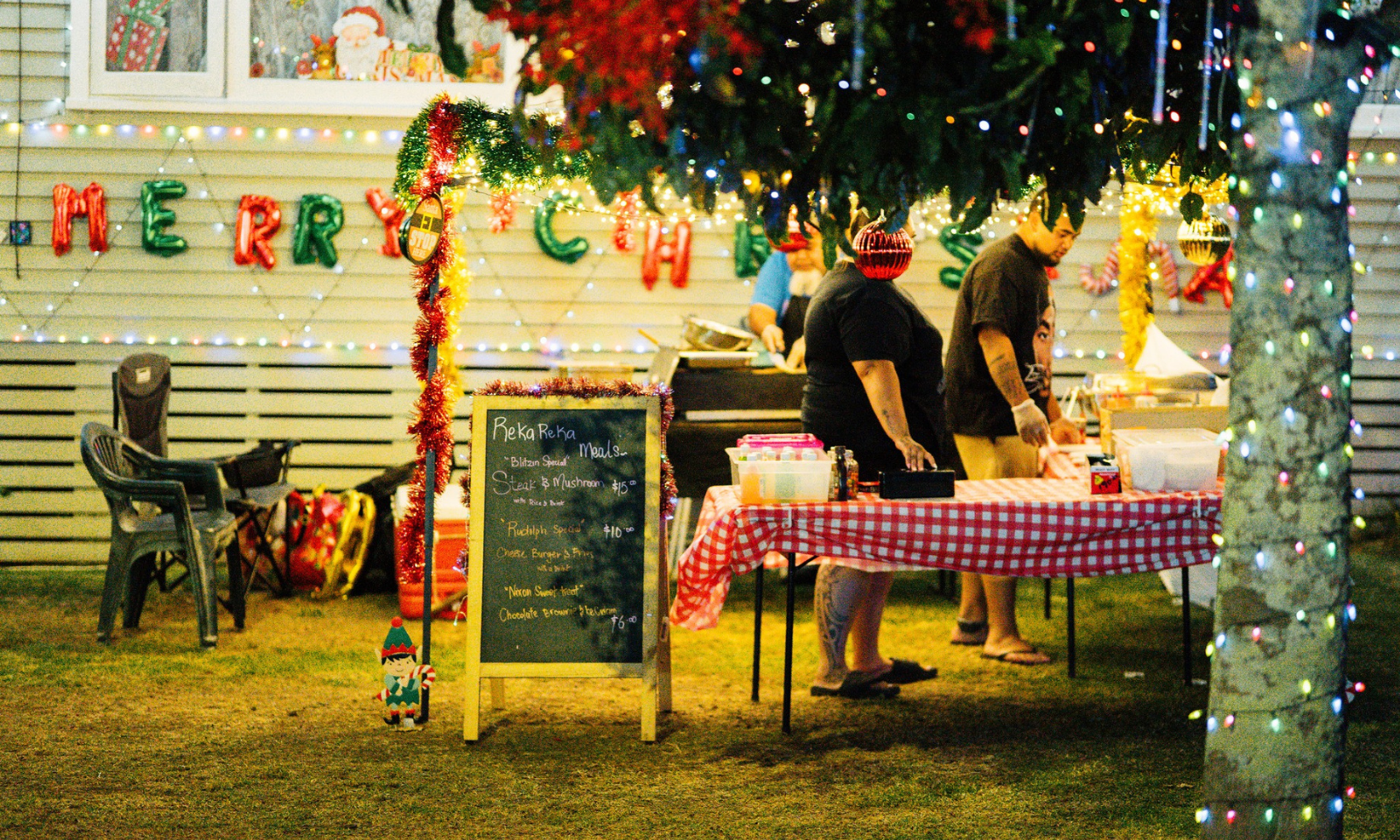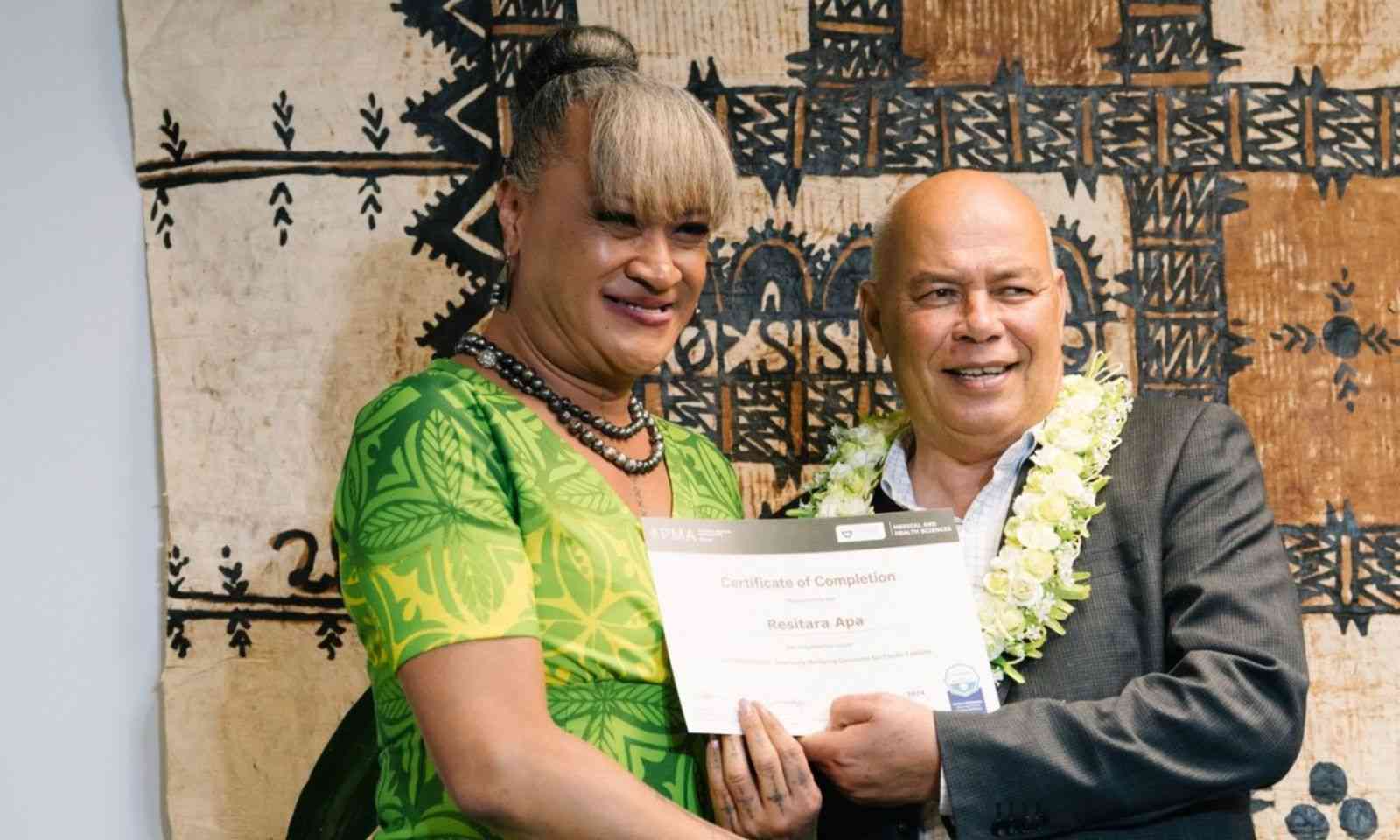

Fa'afafine advocate Resitara Apa questions who should receive a malu.
Photo/Screenshot, Sāmoa Ministry of Health
Trailblazing fa’afafine defends sacredness of the malu and cultural choices
Resitara Apa speaks to Pacific Days’ Carolanne Toetu'u on the complexities and challenges faced by the fa'afafine community, and her opinion on getting a malu.




Pacific sports wrap: 2025’s massive highs, lows and historic firsts



Top 10 Pacific Island songs you need on your summer playlist in 2025


Pacific sports wrap: 2025’s massive highs, lows and historic firsts

Discussions on traditional tattoo markings have caused controversy online and in the Pacific, with mixed opinions on whether some tattoos should be limited to certain genders.
Sāmoan community advocate Resitara Apa (Moata’a, Safune) said fa’afafine held a special place in Pacific culture, and conversations about getting a malu were not a high priority.
“The fa'afafines, we end up being the caregivers, we end up nurturing, being homemakers, doing the most important job, important roles, there are better things that we need to focus on than that.
“I would say 99 per cent of the fa'afafine back in Sāmoa, they don't think of this malu, it's not on their radar to have a malu done.”
Speaking to Carolanne Toetu'u on Pacific Days, Apa said these conversations must be led by those with lived experience.
“Society, the community have made it an issue, for bringing it up, it’s like ‘OK, you can talk about us, but we’re not going to bend to that’.”
The malu was traditionally a female-specific tattoo, with delicate designs from the knee to the upper thigh.
The tattoo was often applied to the daughter of a chief after reaching puberty and was seen as a symbol of service to your village.
Apa said it was a personal choice but shouldn't be done lightly.
“For the girls [fa’afafine], they might want to go and get it done, but respect it. Don't get it done and wear miniskirts and shorts and tell the world that you've got a malu.
“Getting a malu does not define you, does not make you even be able to be pregnant.”
“There is the understanding back home of the va, tuagane ma le tuafafine (brother and sister), so there are those boundaries which are taboo, so it’s forsaken to get it done.
“If I were to get a malu, nobody would know, because it's sacred, and I wouldn't be going on Facebook Live … no, that's my personal identity to my Sāmoa, to my ground, to my earth.”
A changing culture
Apa has worked in many sectors in Aotearoa and Sāmoa, including public health, cultural advocacy and event management.
Apa said there was a difference in how and where she was accepted.
“Growing up in Sāmoa, I felt the freedom of who I can be. I didn’t need to come out to my parents of family, there’s never been that discussion about my sexuality amongst my family.”

Graduate Resitara Apa with Pasifika Medical Association Group Board Director and Co-Director for Te Poutoko Ora a Kiwa (Centre for Pacific and Global Health), Sir Collin Tukuitonga. Photo/Pasifika Futures
Apa remembered her mother challenging her to have high standards for herself.
“Sunday mornings back in Sāmoa is like the whole family is awake at 4am getting the umu and everything ready, so I'd walk back drunk and Mum would be screaming at me, telling me off.
“She'd be saying things like, ‘you want to be a girl, but you don't know how to be a girl’, and how she brought me up was to be the person that I can be and be the best at it, not be a failure and disrespect myself in that sort of way.”
Apa moved to Aotearoa in the early 90s, saying she had to fit in with society's acceptable standards.
“I felt like I had to change myself in order to adapt, in order to fit in the mould here in New Zealand, in order to get employment, in order to succeed in education, in order to get healthcare and all that.”
Now working in the advocacy space, Apa said life had improved for members of the Pacific Rainbow community.
“I've seen a lot of changes, as girls have more access to hormone treatment, they've got more access to education, they've got more access to employment, for being themselves.
“That visibility and that knowledge has been played over and over again in workplaces and now there's policies which are implemented, which allows for bathrooms … where back then, it was like, ‘okay, which is the closest tree?’.”
A hopeful future
Apa is now a community health navigator for F’ine Pasifika Aotearoa Trust, which supports the LGBTQIA+ community and its wider families.
“It's basically creating pathways that they can actually follow and making life a little bit easier for them and living longer lives, getting education, just providing that pathway and being that push for them to aspire to their goals.”
Apa was grateful for her current situation and hopeful for the future.
“What gives me happiness is ensuring that our future generations have a safe pathway to their aspirations and their identities,
“We've carried most of the burden for them because we've got tough skins, we're Generation X.”